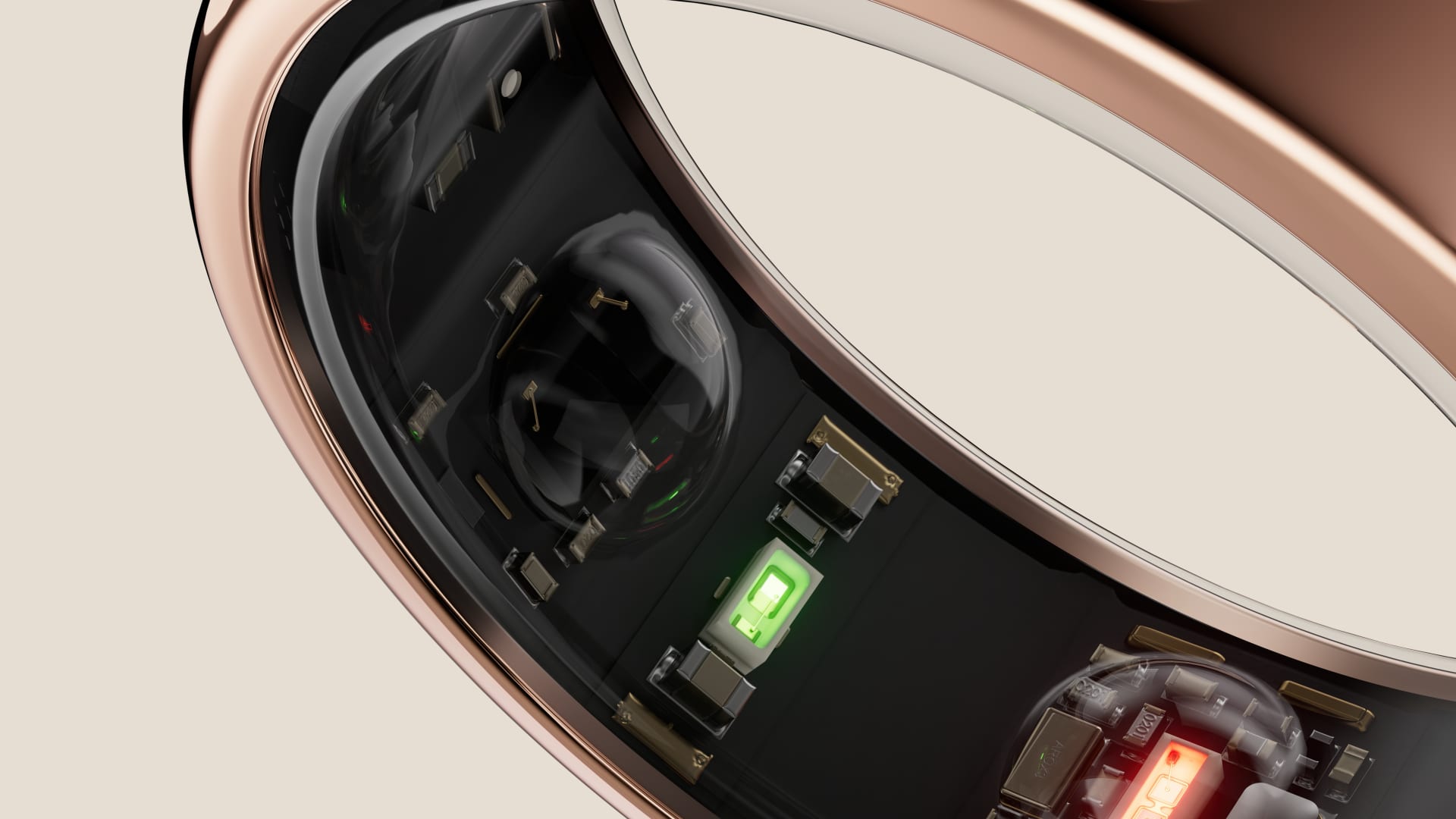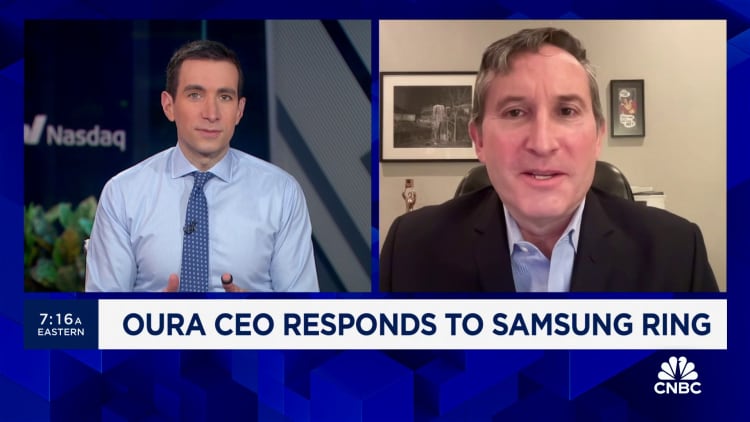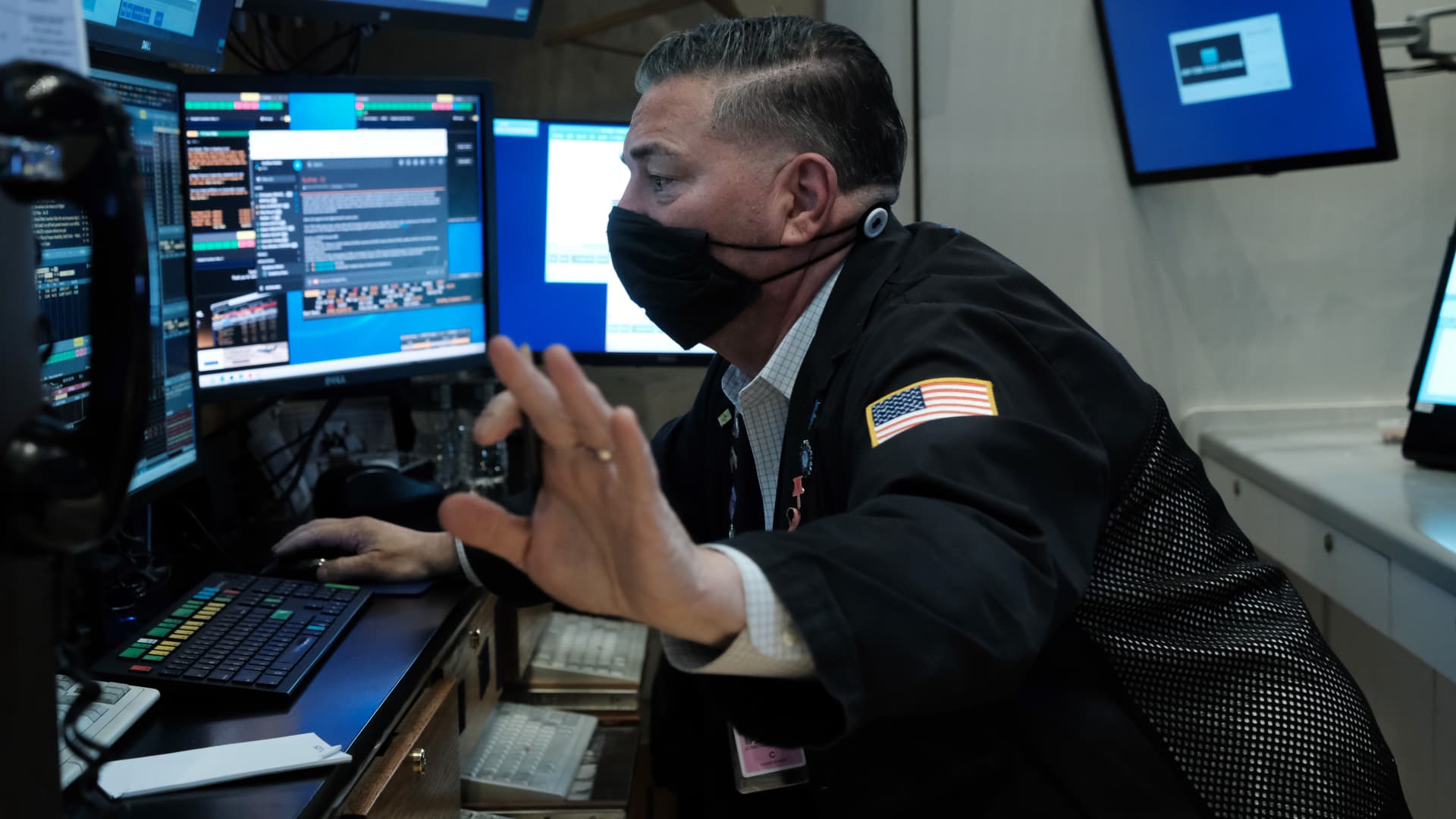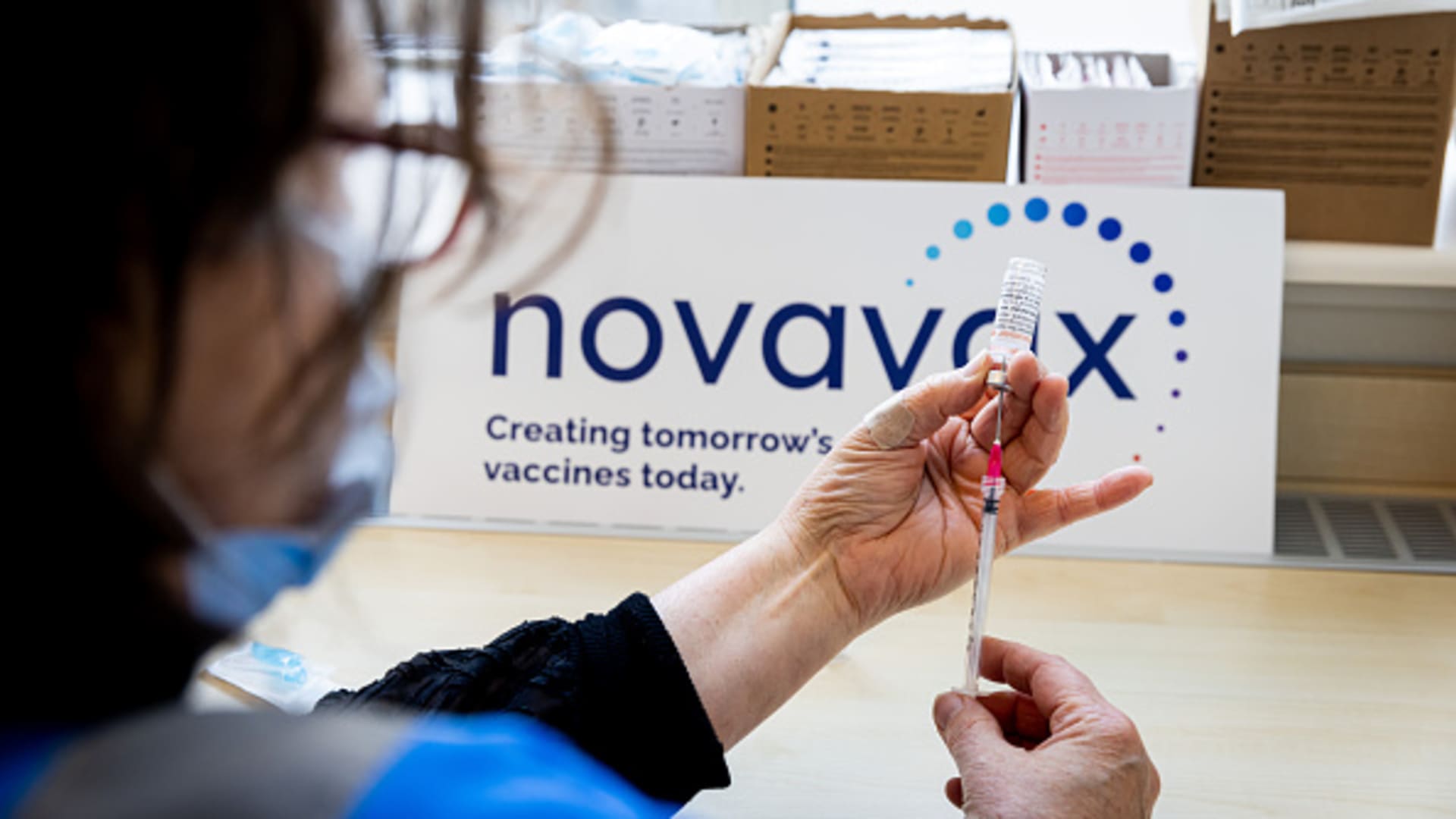Oura to sell its smart rings on Amazon as Apple, Samsung wearables competition grows
Oura, which produces its eponymous smart ring that tracks wearer’s health, will start selling its products on Amazon.

A closeup of Oura's Gen3 Horizon ring and its sensors.
Oura
Oura will now sell its smart rings on Amazon, its latest retail expansion as the health and wellness wearable space continues to grow.
Starting Thursday, Oura will have its full selection of rings and accessories available to U.S. shoppers on Amazon through its own brand store. It will also have sizing kits for sale, helping customers find the right fit and then providing them with a discounted price equivalent to the cost of the sizing kit.
Oura's new e-commerce approach with Amazon builds on the partnership it announced with Best Buy last year to give the company its first U.S.-based large scale retail opportunity. Previously, the company largely sold its products directly to consumers through its website.
"Amazon is a natural step for us," said Oura chief marketing officer Doug Sweeny. "It's an enormous ecosystem and in terms of product reviews and search, it's really important."
Sweeny, who joined Oura in October 2022, said the company has had success with word-of-mouth marketing and when consumers discovered the product at retail locations. Moving onto Amazon's platform, Sweeny said it has worked with the e-commerce company to ensure there is "education, experience and storytelling about the product and the benefits."
While that doesn't mean a big change from Oura's existing marketing approach, Sweeny said the two-time CNBC Disruptor 50 company recognizes that having its products on Amazon opens it up to "a very, very wide demographic of people who want to be proactive and engaging with their health."
The move also comes as Oura faces a new challenge from Samsung in the smart ring category, as well as other wearables adding more health benefits.
The Galaxy Ring, Samsung's latest wearable, is expected to launch this year with health-tracking features including heart rate and sleep monitoring while also giving users a score of their readiness for the day.
Apple has also been adding more health features to its Watch series, while Garmin has continued to see growth as more consumers seek out more ways to track exercises and their fitness levels.
Amazon had been among the competitors directly in the device space targeting people's wrists, fingers and other body parts. But the market, while worth billions, has seen a shakeout in recent years. Amazon discontinued its Halo wearable in April of last year, citing a crowded segment, among other reasons. Early wearables leader Fitbit was acquired by Google years ago and integrated by Alphabet into a Google Pixel Watch.
Oura has separated itself from other wearables in the past with a heavy emphasis on sleep-related data. However, the company has expanded well beyond that in recent years into other biometrics. The rings are equipped with research-grade sensors to track everything from heart rate to temperature to sleep cycles. That data is then analyzed to provide insights regarding activities and exercise, stress levels and overall health status.
More than one million Oura rings have been sold to date, according to Oura. The company has raised more than $148 million in total, reaching a $2.55 billion valuation in April 2022.
Having Oura rings on Amazon will help the company better educate consumers about the product and the health benefits of tracking these metrics, as well as why a ring-based wearable compared to those that are worn on the wrist is preferable, Sweeny said.
As for Samsung's potential entry into a ring, Sweeny said Oura is viewing it "as a positive thing."
"It's a validation of the category," he said. "We're very relentless on the experience side to really create the best product, but we welcome Samsung into the category and ultimately we see it as a really symbolic point in our time."


 JaneWalter
JaneWalter 






























